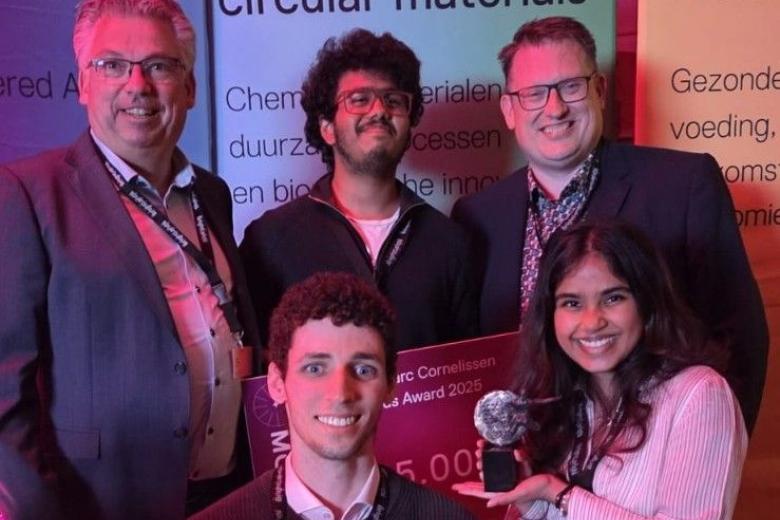A Community of Practice in search of an identity
In the spring of 2022, EDLAB selected a group of teaching professionals, study advisors and students to form a Community of Practice around the topic of blended learning. How did the participants embark on this new experiment? "We soon found ourselves in an identity crisis," explain the two CoP leaders, Annechien Deelman and Hans Savelberg.

|
A definition from the Oxford Languages: |
Are we really a Community of Practice?
In our Community of Practice, we differ opinions on whether we really are a Community of Practice. Looking at the definition above, we certainly are a community. We don’t live together, but we do have a particular characteristic in common. That characteristic is that we all share a passion for education, particularly in relation to Maastricht University’s Problem-Based Learning (PBL).
Initiated as an EDLAB pilot, our Community of Practice was set up around the topic of ‘Blended (re)design’. The topic caused some confusion as ‘blended’ has numerous meanings, from blending work-based education with school-based education to technology-enhanced education (TEE). Since our Community of Practice came about in the specific context of TEE, it seemed our problem was solved: our frame of reference was the use of technology in education.
Soon, however, we ran into the next definition problem: what do we consider ‘technology’? Does something digital have to be involved? The Minister of Education, Culture and Science, Robbert Dijkgraaf, once described technology as anything that has been innovated after one’s birth. For our grandparents, a proper sewage system was technology; for us, it feels like a public infrastructure that has always been there.
Given this definition, technology becomes less unique. It is instead something natural, like breathing air. We cannot decide not to innovate. This realisation made some members of the CoP wonder why we make such a fuss about everything by adding the adjective ‘blended’. In contrast, others joined the CoP expecting to learn quickly how ‘technology’ might improve their teaching practice.
Identity crisis
These confusions created an identity crisis for our Community of Practice. This continued for a while until we identified three related but different areas of interest and split up into three workgroups, within which we are now happily learning away.
- One group is collecting information from students on the blended learning methods they appreciate and are willing to use. They also look into reasons why students get engaged (or not).
- The second group gathers good pre-class assignment practices in a database for teachers.
- The third group is looking at the general conditions at Maastricht University to make it possible for education makers to construct a healthy blend of whatever is needed and likely to create an optimal learning path for UM students.

Self-directed topic
With this self-directed topic, and contrarily to the initial CoP, members are feeling a sense of freedom and autonomy. In the initial CoP, we sometimes asked ourselves whether our work aligned with EDLAB’s facilitators' original idea when they selected us to form the CoP. This seems to be no longer a question in the three self-established groups.
A lesson that we can learn from this process is that Communities of Practice are valuable to make, implement, evaluate, and improve the ‘regular’ scheduled education.
This initiative gave a group of UM staff and students room to focus on education issues of interest outside of the limited hours they usually have. Future pilots could go further and allow UM members to create CoPs based on their interests without constraints or pre-defined objectives.
By Annechien Deelman and Hans Savelberg
This article is a publication of edUMinded, the Maastricht University online magazine on Teaching & Learning.
Interested in more Teaching & Learning stories?
Also read
-
Roy Broersma (CEI): Guiding Aestuarium from idea to venture
Roy Broersma, director of the Center for Entrepreneurship & Innovation (CEI) at SBE, has been closely involved in guiding Aestuarium from an early student startup to a growing venture. From spotting their potential during the Brightlands Startup Challenge supporting them through CEI.
-
From Study to Startup: The story behind Famories
When Lennie and Neele graduated, while many of their classmates were busy fine-tuning CVs and stepping into roles at top companies, they took a detour by recording podcasts with their grandmas. What began as a charming way to cherish family memories has blossomed into Famories, a vibrant startup with a...
-
Riding the waves of change: From a summer vacation to a life that feels as good as it looks
For SBE alumna Victoria Gonsior, one spontaneous decision: trying surfing sparked a journey of self-discovery, leading her to redefine success, embrace joy, and build a career that aligns deeply with her values. From quiet beaches in Sierra Leone to coaching sessions rooted in purpose, Victoria shares...